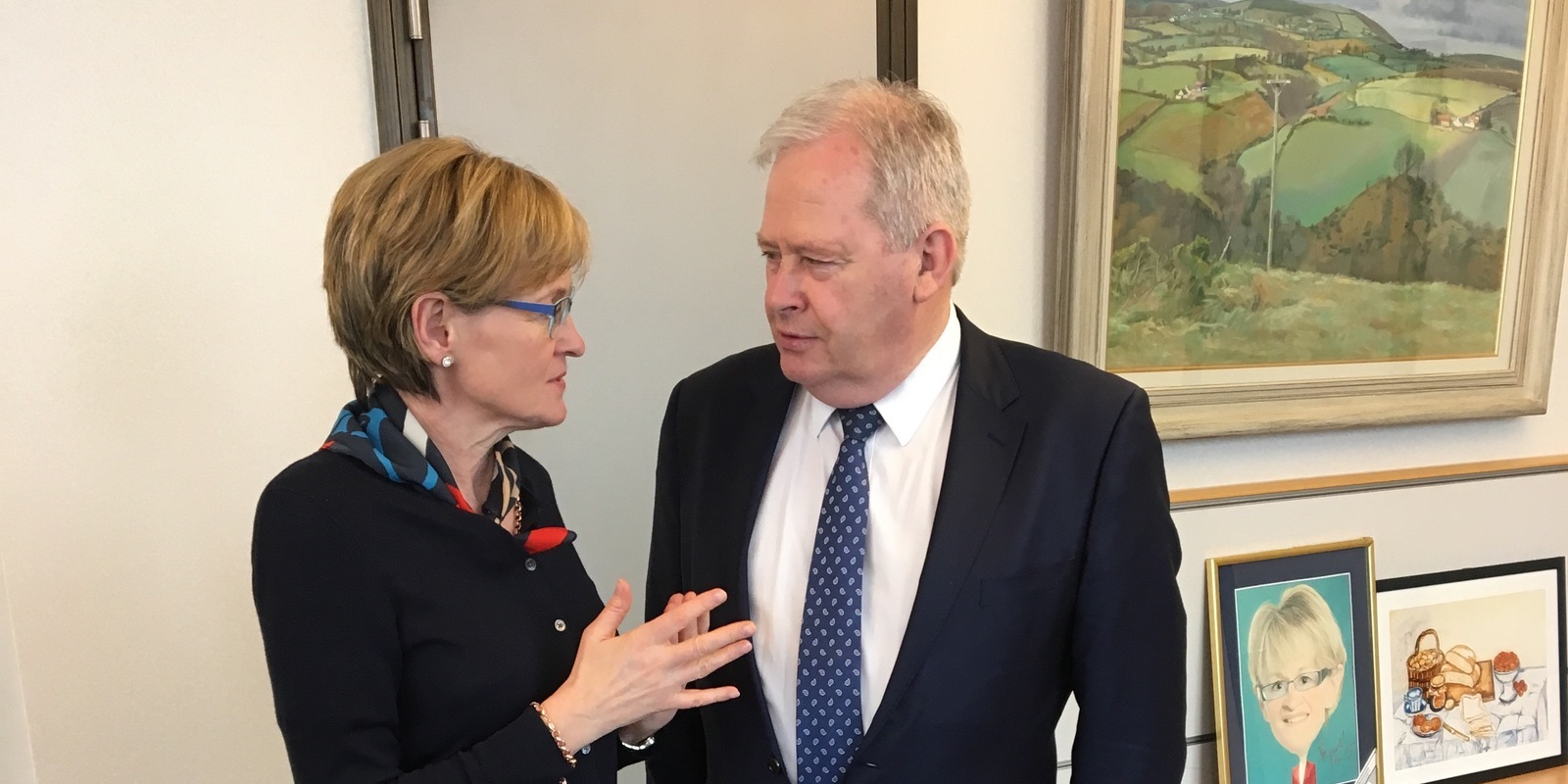ICOS Calls for Long Term Stability and Effective Market Management Tools in future CAP
 ICOS President, Martin Keane, discussing ICOS proposals for the future CAP with MEP Mairead McGuinness
ICOS President, Martin Keane, discussing ICOS proposals for the future CAP with MEP Mairead McGuinness
BRUSSELS & DUBLIN Monday 15th May 2017 – ICOS has launched its CAP Post 2020 policy proposals which focus on the need for long-term policy stability and effective market management measures, in the upcoming reform.
Speaking about the proposals, ICOS President, Martin Keane, said:
“Irish farmers and co-operatives are facing an unprecedented challenge in the coming years as a result of Brexit. With so much uncertainty as to our accessibility and position in the UK market following their exit from the EU, these proposals respond to the needs of the sector for policy stability, effective market support and increased CAP financing. These will be critical to overcoming this challenge as well as for meeting our environmental goals and customer expectations in terms of quality and traceability”.
A key priority outlined by ICOS is to maintain the current market orientation of the CAP.
Keane stated that: “Proposals to reverse this and return to permanent supply management tools, which is already being pushed for by the European Parliament’s Agriculture Committee within in the Omnibus Regulation, cause great uncertainty and are not consistent with the long term investment cycles of the agri-food sector. The future CAP must ensure long-term stability and policy predictability.”
ICOS instead calls for maintaining and enhancing the current market support tools, such as private storage aid and public intervention, in order to provide an effective and adequate safety net for the market. Proposals include:
- Addressing seasonality in order to stabilise market prices, through opening Private Storage Aid support during peak season each year.
- Support for the development of a European Futures Dairy Market through more timely market data information, as well as through training and advisory services for cooperatives.
- Member States should be enabled to adopt income deferral tools and other agri-taxation measures which address volatility, such as the ICOS 555 scheme, which would allow farmers to defer a small proportion of their income in a good year and draw it down in a bad one.
- Greater promotion of EU food quality and standards worldwide to help improve market access for EU products globally.
In addition, ICOS calls for the future CAP to actively promote the position of farmer owned co-operatives in Europe.
Keane emphasises that: “Co-operatives integrate the role of producer, processor and the marketer, helping to rebalance the food chain, bring viable incomes to their members and offer a level of protection from the volatility. While the current CAP promotes the role of Producer Organisations, the next reform must encourage and protect co-operatives, which are the most effective, socially responsible and sustainable form of producer organisation.”
Additional ICOS proposals within the submission include:
- More effective and targeted knowledge transfer of “win-win” solutions and advisory supports for farmers are needed, to improve farm practices in areas such as nutrient management planning, cropland and grassland management, and breeding and genetics.
- To ensure the basic payment scheme supports active farmers, we are against further moves towards a flat rate per hectare payment.
- Young farmers should be better supported through targeted measures to facilitate land mobility, and training and advisory services made available for young co-operative members.
- ICOS supports the development of Financial Instruments within the Rural Development Programmes, to improve access to affordable credit, and calls for these tools to be designed in a simple, accessible and flexible manner.
- The CAP should continue to support dedicated agricultural research and innovation, while improving transparency of research results, knowledge transfer and training to increase its adoption as best practice “on the ground”.